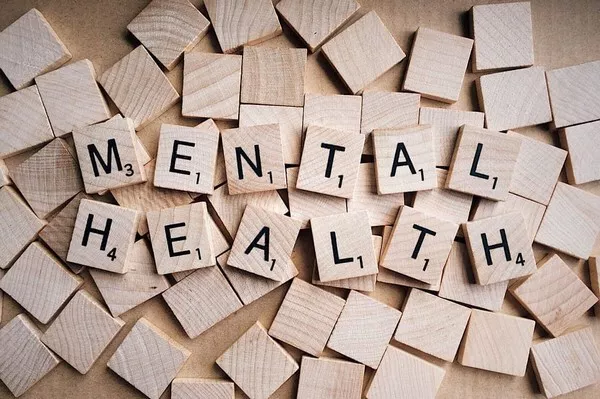Maintaining a state of mental wellbeing is essential for overall health and quality of life. While physical exercise is well-known for its benefits, engaging in mental exercises can also play a significant role in promoting mental wellness. These exercises help enhance cognitive function, reduce stress, foster emotional resilience, and improve overall psychological well-being. In this article, we will explore various mental exercises that can contribute to maintaining a state of wellbeing, highlighting their benefits and providing practical tips for incorporating them into daily life.
1. Mindfulness Meditation:
Mindfulness meditation involves focusing one’s attention on the present moment, observing thoughts and sensations without judgment. Research has shown that regular mindfulness practice can reduce stress, enhance self-awareness, improve attention and concentration, and promote emotional well-being. Engaging in mindfulness meditation for a few minutes each day can help cultivate a sense of calm and centeredness.
2. Cognitive Stimulation:
Engaging in cognitive activities that challenge the brain can help maintain mental acuity and promote overall cognitive health. Reading, solving puzzles, playing strategy games, learning a new skill or language, or engaging in mentally stimulating hobbies stimulate neural connections, improve memory, and boost cognitive flexibility.
3. Gratitude Journaling:
Keeping a gratitude journal involves regularly writing down things you are grateful for. This exercise helps shift the focus towards positive aspects of life, fosters a sense of appreciation, and cultivates an optimistic outlook. Research suggests that practicing gratitude journaling can enhance well-being, increase positive emotions, and reduce symptoms of depression and anxiety.
4. Creative Expression:
Engaging in creative activities such as drawing, painting, writing, playing a musical instrument, or dancing allows for self-expression and promotes emotional well-being. These activities serve as outlets for emotions, reduce stress, and enhance self-confidence and self-esteem. Incorporating regular creative practices into daily life can contribute to a sense of fulfillment and joy.
5. Breathing Exercises:
Conscious breathing exercises, such as deep breathing or diaphragmatic breathing, can help reduce stress and promote relaxation. These exercises activate the body’s relaxation response, calming the mind and reducing the physical symptoms of stress. Taking a few minutes each day to focus on slow, deep breaths can have a profound impact on mental well-being.
6. Positive Affirmations:
Positive affirmations are statements that promote self-belief, self-compassion, and a positive mindset. Repeating affirmations such as “I am capable,” “I am deserving of love and happiness,” or “I am resilient” can help challenge negative self-talk, boost self-esteem, and cultivate a positive self-image. Incorporating positive affirmations into daily routines, such as reciting them during morning rituals or writing them down, can reinforce positive thinking patterns.
7. Social Connections:
Nurturing social connections and engaging in meaningful relationships is vital for mental well-being. Spending quality time with loved ones, participating in group activities, or joining clubs or organizations that align with personal interests fosters a sense of belonging and social support. Engaging in conversations, actively listening, and expressing empathy contribute to healthy social interactions and promote emotional well-being.
8. Self-Reflection:
Taking time for self-reflection allows for introspection and self-awareness. Journaling, engaging in mindfulness practices, or seeking therapy can facilitate self-reflection and help identify and address emotional patterns, triggers, and areas for personal growth. Regular self-reflection helps cultivate a deeper understanding of oneself and promotes personal development.
Incorporating Mental Exercises into Daily Life:
Here are some practical tips for incorporating mental exercises into your daily routine:
1. Set Aside Dedicated Time: Allocate specific time slots for mental exercises, ensuring they become regular habits. Start with short sessions and gradually increase the duration as you become more comfortable.
2. Create a Supportive Environment: Designate a quiet and comfortable space for meditation or reflection. Surround yourself with materials and tools that inspire creativity and engagement in cognitive activities.
3. Integrate Exercises into Existing Routines: Pair mental exercises with existing daily routines to make them more accessible. For example, practice deep breathing while waiting for the bus or engage in cognitive puzzles during breaks.
4. Experiment with Different Exercises: Explore a variety of mental exercises to find those that resonate with you. Experiment with different forms of meditation, creative activities, or cognitive challenges to discover what brings you joy and promotes mental well-being.
5. Practice Consistency and Patience: Like physical exercise, the benefits of mental exercises accumulate over time. Consistency is key, so commit to regular practice even when faced with challenges or setbacks. Be patient and kind to yourself throughout the journey.
Conclusion:
Maintaining mental well-being requires proactive care and attention. Engaging in mental exercises offers a powerful toolset for promoting cognitive function, emotional resilience, and overall psychological well-being. Incorporating mindfulness meditation, cognitive stimulation, gratitude journaling, creative expression, breathing exercises, positive affirmations, social connections, and self-reflection into daily life can contribute to a state of mental well-being. By prioritizing mental exercises and integrating them into our routines, we can enhance cognitive function, reduce stress, foster emotional well-being, and experience a greater sense of fulfillment in our lives. Remember that everyone’s mental well-being journey is unique, so explore various exercises, find what works best for you, and enjoy the transformative benefits these practices can bring.


